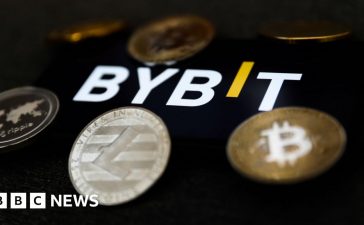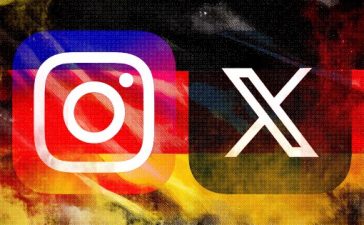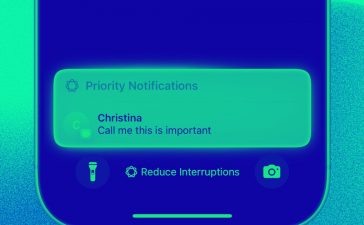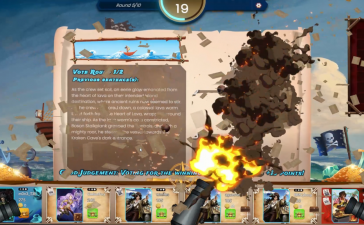Liza Koshy told her 17 million subscribers that she needed to be seen as a human, not a character. Dan Howell had a ‘complete breakdown’. MatPat, the host of Game Theory, knew he would walk away three years before he finally did, saying “I didn’t want to do this forever.” After ten years of weekly uploads, Tom Scott said in his ‘goodbye’ video he needed “things in my life that are not work”.
I, too, quit YouTube. When people find out I was a content creator, they always get excited. When I tell them I quit, they always ask why. Six years after I last uploaded, I still don’t have a proper answer. I’m caught between two truths: it was amazing and led me to do incredible things; it was immensely stressful and made it so much more complicated to exist.
Between 2010 and 2021, I filtered my life through YouTube. My growing up was immortalised on video, often rendered in painful detail. Every misadventure and cringe-inducing moment. My relationships, my mental health, my political beliefs. A full coming of age, breadcrumbed across the internet in 5-10 minute long videos.

Over the years, I gained 15,000 followers across various platforms, over 7,000 of whom subscribed to my YouTube channel. Small fry numbers, but even small fry numbers led to speaking on panels, interviews with newspapers, and fanmail from people around the world.
It would appear, to those outside of it, like a dream. For many young people, it is the dream. The most desired career among under-18s is ‘YouTuber’. ‘Creator camps’ have popped up across the US, teaching digital and creative skills to 6 to 13-year-olds.
It should come as no surprise. Being your own boss? Getting paid to make videos about whatever you’re passionate about? Love from millions of fans? It’s a touch more appealing than the prospect of years of exams to be a doctor or sad office lunches. So why do people walk away?
Caspar Lee is one of the most recognisable names and faces of the ‘YouTube Brit Crew’ era of UK digital exports, along with fellow creators like Alfie Deyes, Zoella, Joe Sugg, Jim Chapman, and Marcus Butler. Caspar’s channel, which last saw frequent uploads in 2018, still has 6.5 million subscribers.
When I ask him why he quit YouTube, there’s a long pause. “The word retire… is probably better,” Caspar says with a laugh, his voice lifting and hesitant.

Caspar was 16 when he first uploaded on YouTube. His early videos were mostly skits: funny, choppy, and offbeat. Back then, Caspar relied purely on the resources he had in his bedroom and house. His most reliable prop was his black flip phone, and his favourite costars were his family (and dog).
It was 2012, and it was in this era, right at the start, when Caspar could do whatever he wanted for a video, and people would be interested. They wanted to see a house tour. They would click on something unusual and experimental. There was not only space for a silly video of a teenager running around the woods chatting about unicorns, but an actual reverence for it.
“A lot more thought has to go into it now.” He explains. “For people like me, who started in that era of ‘I’m going on holiday, I’m going to share that,’ or ‘I’m hanging out with this person, I’m going to share that,’ the other platforms have almost become easier in that regard.”
Caspar still wrestles with why he dropped away from YouTube. Around 2019, he took a week’s break from uploading, which turned into two weeks, which turned into a few more. Before he knew it, he hadn’t uploaded in months. The transition was uncomfortable and difficult. Changing that part of his identity made him incredibly anxious. “I cut down on a lot of opportunities and was scared to do things. I had unbelievable imposter syndrome.”
But being released from the demands of regular uploads meant Caspar had more energy to focus on his new businesses. In 2017, he launched marketing agency Influencer, which now works across the UK, US, and Middle East. It was born out of Caspar’s own experiences with rubbish brand deals, and his desire to make the whole experience better, for everyone. In 2018, he founded MVE with Joe Sugg, to bring a ‘thoughtful approach’ to talent management.
They’re both extensions of what he did and learned on YouTube, because he knows, better than any corporate bigwig, the details of being within the industry. He stopped being a YouTuber, but never really left YouTube.

Taha Khan, like me, discovered YouTube around age 10. His first generation iPod Touch came with the app as a default; an unassuming vintage TV with a big blank screen. He clicked, started watching, and a world opened up.
Taha was hooked on the appeal of making stuff instantly. In a year, he made three YouTube channels. The first was a ‘gaming’ channel, where he cut videos into compilations. When he wanted to try something else, he ran into the small issue of not actually having a camera, bar the pixellated nightmare of flip phones and laptop webcams. But tech companies were already gearing up to cater to this growing appetite of the new point-and-shoot generation. First Apple put YouTube in Taha’s pocket, and then they put a camera in his parent’s phones.
Suddenly, he could place himself in the limelight. Not that he actually enjoyed the limelight all that much, as it turned out. Taha recorded a dance to a Taylor Swift dubstep remix. It got over 100,000 views. He was terrified: “That’s too many people,” and he deleted the channel. If I’d seen 100,000 views on one of my videos, it would have felt like I was dreaming. For him, it was horrifying. He ran from it, where I chased all of it for years: the numbers, the fame, the recognition.
His third channel, where his comedy blossomed, survived longer than the other two. When he stopped uploading, it was because he felt it was just done. Right from the start, Taha had defaulted to thinking about his own content through the lens of TV production, and now, he had ‘finished the season’. But YouTube was also a different platform by the time he went on ‘indefinite hiatus’, as his channel now states.
Things changed very slowly, he explains. They shifted in specific, individual ways that were small enough to go undetected in the moment. But then, one day, years down the line, “you look up and everything has been industrialised.”
When I question him on this ‘hiatus’, he doesn’t squirm. “I’ll come back someday.” He says, smiling with steady self-assurance. “If I have a creative pursuit which doesn’t have a home anywhere else, I know I can self-publish whatever I want on there.” And there it is: that same persistent drive and freedom which attracted him in the first place.
Taha’s current creative pursuit, and his full-time job, is a different YouTube product: ‘Answer in Progress’. It’s an edutainment channel which he makes up on third of, alongside Sabrina Cruz and Melissa Fernandes. The content is slick, clever, well-produced, and joyful. I can’t help but think of how Taha described early YouTube, and see it mirrored here. Passion. Creativity. Freedom.
Josiah Williams calls from South Africa, where he’s working as a digital producer on Love Island All-Stars season 2. Everything he learned from uploading videos applies to his job now, from the technicalities of operating camera equipment to thinking about audience and presentation.

Josiah’s motivations for uploading on YouTube are crystal clear: he wanted to be famous. But, with time, a different desire emerged: he wanted to fit in.
It was the social pressure to make contacts and impress other YouTubers that he found so stressful. Meeting other creatives at events, while amazing in the moment, would always boil down to him getting in his own head: did they follow him? Did they watch his videos?
“I wasn’t really a YouTuber,” Josiah muses, looking up at the ceiling as he casts his mind back. “I was more of an imposter.” This word – imposter, the same one Caspar used – always comes up when people talk about the industry. Maybe it’s only natural. How could anyone not have a crisis of identity when what you’re selling is your identity, all while under the pressure of keeping it valuable, attractive, and engaging?
Even MrBeast, the most popular YouTuber on the planet, laments the commodification of himself: “It’s not a typical business because any other company, you can replace anyone. But you are the business,” he told the Theo Von podcast late last year.
But it wasn’t the social pressure which led Josiah to stop uploading. It was much more civilian, much more predictable. He grew out of it. “It kind of feels like the Peter Pan story. YouTube was like Neverland.”
So why do YouTubers quit? Well, loads of reasons. Burnout, creative block, exhaustion with the public eye, frustrations with the way the platform is managed.
But I’ve come to suspect that they actually never do, on an existential level. The uploads to the website might slow or stop entirely. But most of us, if not all, were drawn to making videos because we were excited about something and needed a creative outlet for it, and that instinct is not as easily outgrown. I know of zero ex-YouTubers who stopped uploading and then divorced themselves entirely from their chosen creative industry.

As a teenager, YouTube was an unmoderated, unbothered-by-parents world in which I got a chance to be completely in control, during a time when it felt like all my decisions were being made for me. But while I was distracted by playing at being a grown-up, becoming one in the real world snuck up on me.
Ultimately, I quit because I was tired of being positioned as a product on a screen. It was, of course, me who put myself there, but being ‘on’ all the time – a sentiment I hear from creators constantly – takes its toll. For the biggest YouTubers, it never stops (until they quit). MrBeast, whose real name is James Stephen Donaldson, said he wouldn’t advise people to do his job. It’s neverending: if his “eyes are open”, he’s working on YouTube.
But after years of doing it, the compulsion to post, though tiring, feels safe and familiar. It actually takes more effort to stop sharing everything, to be picky over which bits are shown to the light and which are sealed away from the public. The prospect of, god forbid, an actual private life is dizzying. My adulthood has, among other things, been the process of learning how privacy and boundaries work.

But once you get there, it feels like liberation. The peace of sitting down for lunch, and not feeling the need to tell everyone on Instagram that you’re having a salad.
There is, of course, a happy medium between the two extremes. “When you’re in the business of growing a YouTube channel, you’re always trying to improve on everything,” Caspar says. “And so you’re thinking about every opportunity to make content. I still do it because I like to share stuff.
“But I can enjoy my salad without sharing it now. That’s nice. Well, I don’t actually enjoy salad, to be honest. I enjoy my pizza.”













